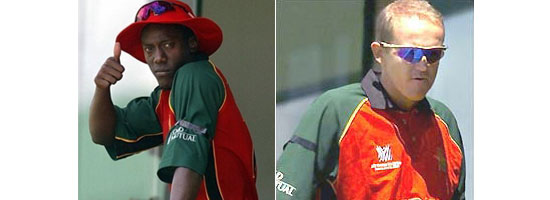After
the hullabaloo that accompanied the successful protest march by the MDC-T, what’s
next? That is a question that I have been asking myself two weeks after Harare’s
CBD was painted red. Some say it was a significant event. The ambitious say it
was historic whilst some, or to be polite, the regime saw it as a non-event, as
just another day. But was all that ado about something?
We
are at a juncture where anything can happen. The citizen is unsettled and the
master is afraid. So when the MDC-T marched in protest, all the signs in the
citizen that it is tired were more apparent than ever. We cannot simply leave
it to the new constitutional dispension that we find ourselves in, where the
citizen can protest freely, no, that is not. Nor will we ever understand the
true reason why the march went on freely. But alas, for the first time in this millennium
an opposition demonstration actually went ahead with the full backing of the
police. That on its own is historic, but that successful demonstration should
only be reserved for that day only because the citizen is not entirely free to
demonstrate. Patson Dzamara found out at the grandest of them all; during the
Independence celebration at the National Sports Stadium, just a few days after
that MDC-T march.
But
as much as everyone was happy about the march, it was never really about the
people but rather about the resurrection of Tsvangirai. He rose from wherever
he was and marched and everyone was happy but what next? What should happen
next or rather, what ought to have really happen? What did they really achieve
when it comes to the current political situation? From past experience,
Zimbabwe’s opposition is quite slow when it comes to grabbing opportunities. To
be precise, they never take the opportunity fully. Tsvangirai demonstrated in
2008 by running to Botswana and the Dutch Embassy. ZANU-PF has been bundling
this country through a series of gross mismanagement and where you expect them,
maybe not to take over as it is beyond them, to act as a force against the
government they have consistently failed. I suppose one cannot fix another man’s
house when his own is in shambles.
For
one they could actually have built from that historic march. It is not only the
members of the opposition who are suffering, it is everyone. The regime is
tired and afraid. The reason why any sort of protest or opposition against the
government is always crushed it’s because the regime scared. The people are on
the edge and Mugabe and his cronies are fully aware of this. If the opposition
as a whole could build up on the march and mobilise for the cause of everyone,
the change they have been promising can be a reality. A peaceful protest that
culminates into a civil disobedience in the streets till a final push to the
state house. Well this is just me; the time to follow up is now.
The
people have had enough but they are scared of going ahead on their own. Zimbabwe
needs someone like South Africa’s Julius Malema, to some extent even DA’s
Maimane. What these two have managed to do is to keep Zuma on his toes. Sadly Mugabe
can do whatever he wishes, doze off in the process because he is untouchable. The
opposition forces in Zimbabwe need follow up. When the regime gives you such an
opportunity you grab it.
To
some extent when Tsvangirai and his people marched, they were not prepared for
the after effects of such event because they never expected the march to
succeed. Met with no resistance as they are most accustomed to, it was
something new. The regime had them in check because without violence they could
control them. It would have been something else had the police fired their
customary teargas because anything could have happen. Sadly on a day when the
opportunity was presented, it amounted to nothing more than a rally to assure
the world that Tsvangirai is still around. Much more like whole lot of ado
about nothing.


